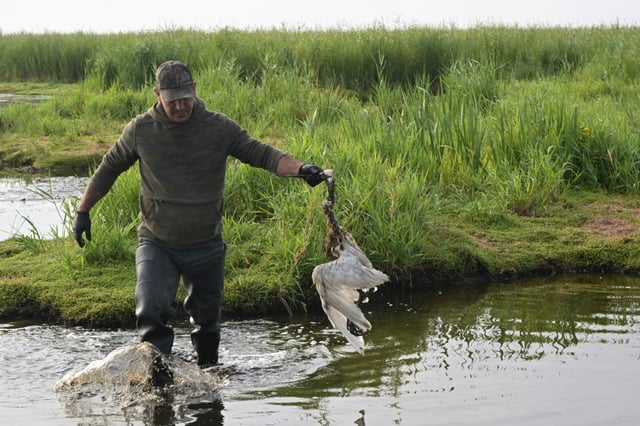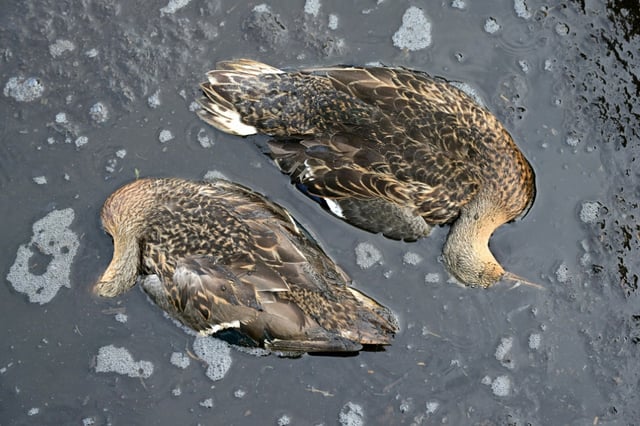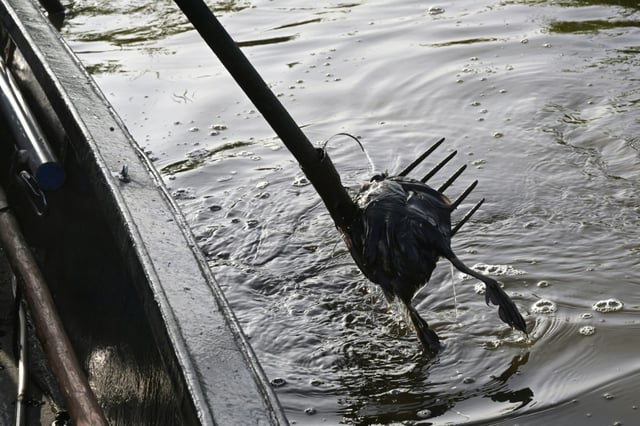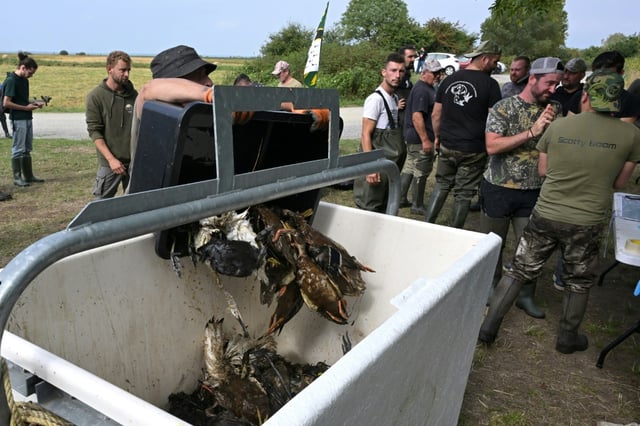Overview
- Volunteers and authorities have removed over 3,600 waterbird carcasses since mid-July, including 600 recovered in the Brière marsh this Saturday.
- This mortality surge marks the worst avian botulism outbreak in the region since 1995, fueled by an early summer heatwave and severe drought.
- Near-daily cleanup operations around key sites like Lac de Grand-Lieu aim to curb transmission as decaying carcasses harbor botulism-causing bacteria.
- Waterbird hunters and park officials warn that current hydraulic regulations failed to maintain adequate water levels and are calling for a comprehensive management overhaul.
- Experts caution that climate change may increase the frequency of extreme heat and drought across 25,000 hectares of wetlands, raising future outbreak risks.



